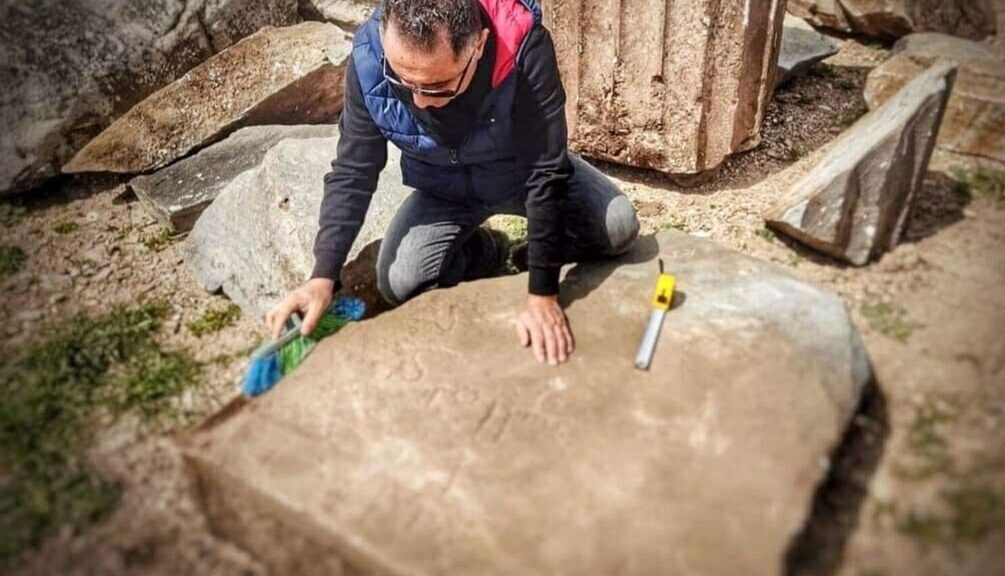Turkish experts find 4 Umayyad epigraphs in the ancient city Knidos

Four inscriptions made of marble and limestone from the Umayyad period have been unearthed during the archaeological excavations in the ancient city of Knidos in the western province of Muğla’s Datça district.
The excavations have been carried out in the ancient city under the direction of Professor Ertekin Doksanaltı from Selçuk University’s Archaeology Department, with a team of 40 people consisting of geologists, architects, restorers, art historians, biologists, anthropologists, and excavation workers.
Four inscriptions were determined to belong to the Umayyads, who ruled in the city of Knidos between 685 and 711.

It has been determined that the names of tribes that would participate in the Umayyad expedition to Istanbul, as well as commanders and administrators, are written on the four inscriptions found during the excavations.
Doksanaltı said that excavations have been carried out since 2016 in the ancient city of Knidos within the framework of the 12-month excavation project of the Culture and Tourism Ministry.

Stating that amazing archaeological discoveries were made during the excavations, Doksanaltı said: “On the first day of Ramadan, Knidos presented us with a beautiful gift. Four new Umayyad inscriptions were unearthed during the archaeological excavations.
These inscriptions, which are the largest remains of early Islam in Western Anatolia, contain names of tribes, commanders, and rulers who participated in two of the three expeditions organized by the Umayyads to Istanbul.
Knidos, which offers many new data from the ancient period, showed how important it can be in terms of Islamic historiography with its data that will shed light on the early periods of Islam.”
Stating that the inscriptions vary in length from 15 centimetres to 1 meter, Doksanaltı said that the examinations continue on the artefacts.
Founded by Greek settlers, Knidos became an important cultural and political centre after the fifth century B.C. because of being a busy trading hub in the region.
The city was also famed for its association with Aphrodite and for its famous statue of the goddess, sculpted by Praxiteles of Athens.
